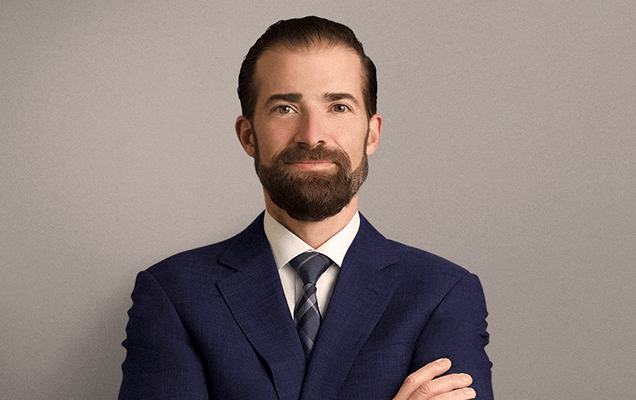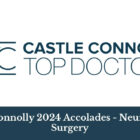One of the first things you may wonder when you’re initially diagnosed with trigeminal neuralgia (TGN) is whether or not it will go away on its own. A common question asked during a first consult is, “Does trigeminal neuralgia go away?” This isn’t unreasonable — trigeminal neuralgia is considered to be one of the most debilitating and painful of the facial disorders. Hope that you may wake one morning and be pain-free isn’t out of your reach. Although it cannot be cured, there are numerous treatment options that can help you to feel better and find relief from your symptoms.
The Gist of Trigeminal Neuralgia
Trigeminal neuralgia is a confusing and painful facial condition that stems from the trigeminal nerve. It is caused by one of two things — the first and most common is what is called an impingement. An impingement is a pinching or compression of a structure caused by another structure. In the case of trigeminal neuralgia, it is a blood vessel such as a vein or artery pressing against the trigeminal nerve and causing extreme irritation. This is exacerbated by the fact that there is blood pulsing through the offending vessel, causing constant irritation of the nerve.
The second cause can be the result of an injury or irritation to the trigeminal nerve. Trauma or an illness such as multiple sclerosis can damage the myelin (the protective outer coating found on nerves), allowing the nerve to be exposed in areas. Without this protective layer, the nerve is vulnerable and can become easily irritated and inflamed.
Regardless of the cause of your trigeminal neuralgia, the outcome is the same — stabbing, electric shock-like periods of pain lasting from a few seconds to a few minutes.
Does Trigeminal Neuralgia Go Away?
The short answer to this question is not likely. Trigeminal neuralgia may continue to worsen, rather than improve, over time. This means that you may start out with a milder case but it can continue to progress and the pain may intensify over time. The frequency of the spells may also increase and become closer together.
Are you out of options to eliminate your pain?
How Trigeminal Neuralgia Is Treated
There are a few treatment methods that stand out above the rest in terms of efficacy, safety and long-term results. Depending on your individual case and symptoms, not to mention the cause, you and your medical team can devise an excellent plan to get you pain-free and back into your daily life.
Medications
The first line of treatment is medication. This is tried before anything else in hopes that it will control the pain. For some people these anticonvulsants called Tegretol and Trileptal will provide adequate relief, allowing the patient to remain on them long-term. Unfortunately, in many instances, medication only works for a little while and then the symptoms start returning. This is known as “breakthrough symptoms” and indicates a need for an increase or change in meds. Others may experience unbearable side effects as the dose is increased, making the need to seek other treatment options necessary.
Microvascular Decompression Surgery
If medications end up not being an ideal treatment for your trigeminal neuralgia your doctor may recommend microvascular decompression (MVD) surgery. This is considered a highly effective procedure for TGN. There are a few things that will need to be verified before you can proceed with MVD surgery. First, it’s recommended that you be younger and healthy. This means that you don’t have any underlying medical conditions that would put you at risk when you undergo anesthesia. Secondly, MVD is only effective for trigeminal neuralgia caused by compression of your trigeminal nerve. To determine whether this is the root cause you will need to have a FIESTA MRI. This special imaging study will allow your doctors to see if a blood vessel is pressing on your trigeminal nerve. If it is and you are healthy, you are likely a very good candidate to receive MVD surgery.
The procedure itself requires that you are put under general anesthesia. Your surgeon will make a small incision at the base of your skull and then remove a quarter-sized portion of bone tissue. Using a surgical microscope and specialized instruments, the blood vessel will be gently lifted away from the nerve and a tiny Teflon sponge placed between the two. This will cushion your nerve from the irritation of the blood vessel and, in many cases, provide immediate relief.
Gamma Knife Radiosurgery
If you are not a good candidate for MVD, or do not want to undergo a traditional surgical procedure, Gamma Knife Radiosurgery (GKRS) may be an excellent alternative. This minimally-invasive treatment uses tiny beams of radiation that are able to be finely targeted to the offending area of your trigeminal nerve. When these small beams converge, they deliver a dose of therapeutic-level radiation that damages the nerve. Once the full effects have taken place (unlike MVD surgery, the results are gradual), the nerve impulses that were causing your pain are disrupted and unable to cause symptoms.
Percutaneous Rhizotomy
Another option for treatment of your trigeminal neuralgia is percutaneous rhizotomy. Under full sedation (but not anesthesia) your surgeon will guide a specialized needle to the damaged area or areas of your trigeminal nerve. Once in place balloon compression, heat or glycerol will be applied to cause injury to portion of the nerve that will arrest the painful impulses. This procedure provides more rapid results than that of Gamma Knife Radiosurgery but is usually not as immediate as microvascular decompression.
Pain Stimulator Placement
Another good option for trigeminal neuralgia relief, pain stimulator placement is a minimally invasive procedure that can provide excellent results. Stimulator placement involves your surgeon guiding tiny electrodes under your skin and to your trigeminal nerve. These electrodes are then connected to a stimulator that will release tiny electrical pulses that disrupt the misfiring nerve impulses. You will be started out with a trial run and an external stimulator; if it proves to provide you with the relief you’re seeking a permanent stimulator will be placed under your skin.
There may be no cure for trigeminal neuralgia but with more options than ever to control the pain, you can live a pain-free life. You and your surgeon can work closely together to determine which of the above treatments is the best for you and your unique needs.

About Dr. Anthony D'Ambrosio
Dr. Anthony D'Ambrosio is an accomplished neurosurgeon in North Jersey and a proud member of Neurosurgeons of New Jersey practicing primarily out of their Ridgewood office conveniently located on East Ridgewood Avenue. Dr. D’Ambrosio focuses his clinical practice on brain tumors, nervous system disorders, and facial pain disorders. He has expertise in a variety of complex surgical and radiosurgical techniques as well as minimally invasive procedures intended to successfully treat complex diseases of the brain. These techniques include micro-neurosurgery, microvascular decompression surgery and Gamma Knife radiosurgery. He's authored over 25 peer-reviewed journals and is the recipient of many awards.






